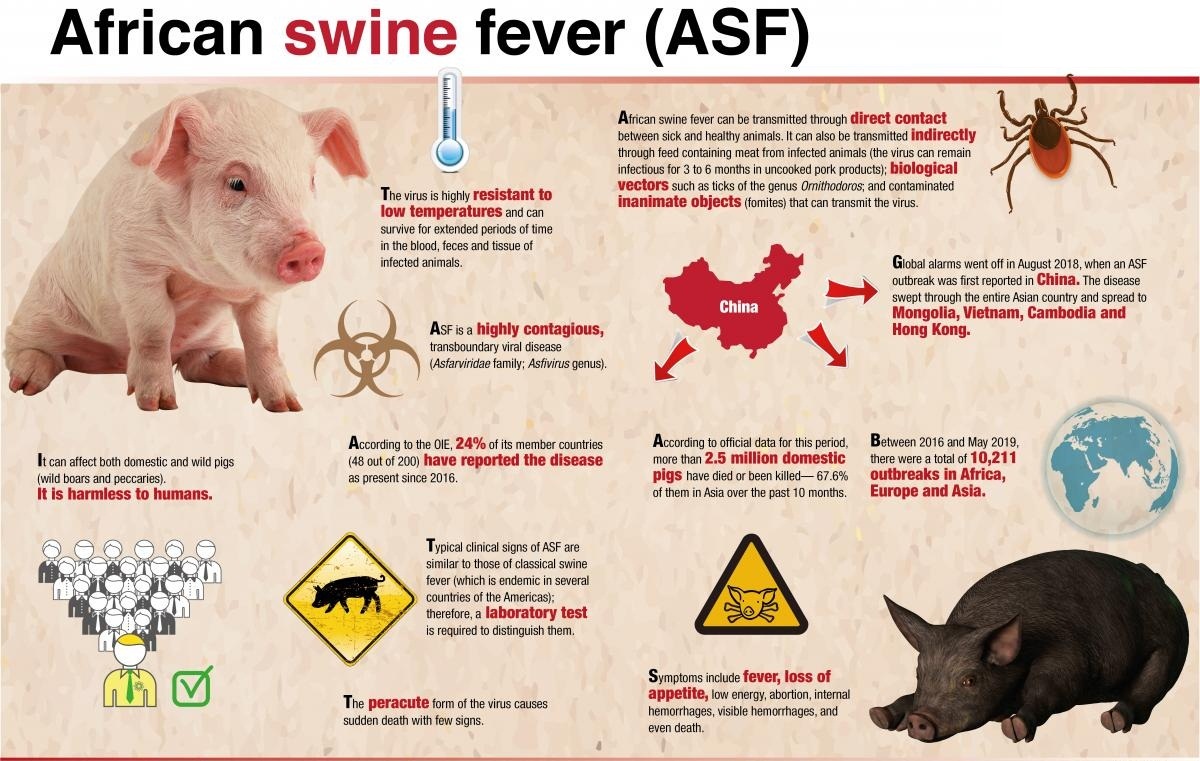Biodiversity & Environment
African Swine Fever
- 26 Jun 2021
- 3 min read
Why in News
Nagaland has not reported fresh cases of African Swine Flu in the last two weeks.
- The disease was first reported in November-December, 2019 from the areas of China bordering Arunachal Pradesh.
- Earlier in April 2020, there were reported deaths of pigs due to the Classical Swine Fever (CSF).
Key Points
- About:
- It is a highly contagious and fatal animal disease that infects and leads to an acute form of hemorrhagic fever in domestic and wild pigs.
- Other manifestations of the disease include high fever, depression, anorexia, loss of appetite, hemorrhages in the skin, vomiting and diarrhoea among others.
- It was first detected in Africa in the 1920s.
- Historically, outbreaks have been reported in Africa and parts of Europe, South America, and the Caribbean.
- However, more recently (since 2007), the disease has been reported in multiple countries across Africa, Asia and Europe, in both domestic and wild pigs.
- The mortality is close to 100% and since the fever has no cure, the only way to stop its spread is by culling the animals.
- ASF is not a threat to human beings since it only spreads from animals to other animals.
- ASF is a disease listed in the World Organisation for Animal Health (OIE) Terrestrial Animal Health Code and thus, reported to the OIE.
- Classical Swine Fever:
- CSF, also known as hog cholera, is an important disease of pigs.
- It is one of the most economically-damaging pandemic viral diseases of pigs in the world.
- It is caused by a virus of the genus Pestivirus of the family Flaviviridae, which is closely related to the viruses that cause bovine viral diarrhoea in cattle and border disease in sheep.
- Mortality is 100%.
- Recently, the ICAR-IVRI developed a Cell Culture CSF Vaccine (live attenuated) using the Lapinized Vaccine Virus from foreign strain.
- The new vaccine has been found to induce protective immunity from day 14 of the Vaccination till 18 Months.
World Organisation for Animal Health
- OIE is an intergovernmental organisation responsible for improving animal health worldwide.
- It has 182 Member Countries. India is one of the member countries.
- OIE develops normative documents relating to rules that Member Countries can use to protect themselves from the introduction of diseases and pathogens. One of them is the Terrestrial Animal Health Code.
- OIE standards are recognised by the World Trade Organization as reference international sanitary rules.
- It is headquartered in Paris, France.





